February 4, 2025 | 12:02 GMT +7
February 4, 2025 | 12:02 GMT +7
Hotline: 0913.378.918
February 4, 2025 | 12:02 GMT +7
Hotline: 0913.378.918
Quang Tri Province's Department of Agriculture and Rural Development held a communication conference on December 9 to disseminate the content of the European Union Deforestation Regulation (EUDR). Additionally, the Department reviewed the project on replanting and sustainable development of coffee trees in the province for the years between 2017 and 2020, with a vision towards 2025.

Ha Sy Dong, Acting Chairman of the Quang Tri Provincial People's Committee, noted: "Quang Tri will place special focus on the responsibility of the local leadership in guiding the cultivation and production of coffee that does not lead to deforestation." Photo: Vo Dung.
Coffee is one of the six key crops in Quang Tri Province, with a total acreage of nearly 4,000 hectares. This crop is primarily cultivated in Huong Hoa District, with Catimor as the dominant cultivar. Among this area, nearly 3,600 hectares are available for harvest, with an average yield of 1.2 tons per hectare and a total output of 4,300 tons per year. Consequently, coffee cultivation serves as the main source of income for over 6,000 local households, employing more than 15,000 workers.
However, the price of coffee has dropped significantly and remained at a low level for several years. As a result, old coffee farms declined significantly in both yield and quality. In 2017, Quang Tri issued a policy to implement the coffee replanting project.
After seven years, the total funding for the province's coffee replanting project reached nearly 146 billion VND (57% of the plan). This amount included over 7.4 billion VND in government support, along with contributions from organizations, individuals through non-governmental organizations, and over 138 billion VND from the local community.
From 2017 to 2024, Quang Tri has re-planted nearly 1,100 hectares of coffee trees, reaching 57% of the project's target. The province aims to replant at least 1,900 hectares of coffee trees by the year 2025.
The majority of the re-planted coffee plantations exhibited exceptional growth, with several of them producing fruit, according to preliminary reports. The average yield has reached 15 to 17 tons of fresh fruit per hectare, meeting the project's target and outperforming the old farms by 1.2 to 1.5 times.
In recent years, Quang Tri has also developed sustainable coffee production value chains, thereby establishing linkages with the local business community to facilitate the production and consumption of high-quality coffee products. This initiative has gradually built a reputation for Khe Sanh coffee. The province has established connections with businesses to partner with cooperatives, cooperative groups, and coffee-producing households. Accordingly, the project's total area covers more than 500 hectares in the communes of Huong Phung, Huong Son, Huong Tan, and Khe Sanh Town.
At present, Slow Forest Coffee Company is coordinating with local households, cooperatives, and businesses to implement a high-quality coffee value chain that combines agriculture and forestry. They are also developing an ecological coffee production area, with an estimated acreage of 1,000 hectares.

Coffee replanting has increased productivity by 1.2 to 1.5 times. Photo: Vo Dung.
The coffee product from Huong Hoa District has received the collective trademark certificate "Khe Sanh" from the Intellectual Property Office. Khe Sanh coffee has seen a rise in popularity in both domestic and international markets. High-quality coffee products, such as those from Pun Coffee Company, have won first place for three consecutive years and third place once (from 2021 to 2024) in the Vietnam Specialty Coffee Competition organized by the Buon Ma Thuot Coffee Association. Additionally, Khe Sanh coffee won second place in the AVPA French Roasted Coffee competition in October 2022 and ranked among the top five specialty coffees in the world at the 2023 event held in Japan.
Huong Hoa District has developed six OCOP coffee products, including ground coffee and roasted coffee beans, in collaboration with local businesses and farmers. Among these, five coffee products received a 4-star rating, and one product earned a 3-star rating.
"Quang Tri will place special focus on the responsibility of the local leadership in guiding the cultivation and production of coffee that does not lead to deforestation. The Huong Hoa District People's Committee must coordinate with relevant stakeholders, review, select, and submit the proposed replanting plans for approval at the provincial level. The local Department of Agriculture and Rural Development must provide consultation on support mechanisms and solutions to develop organic, multi-benefit, and multi-income agricultural models," emphasized Acting Chairman Ha Sy Dong.
Translated by Nguyen Hai Long
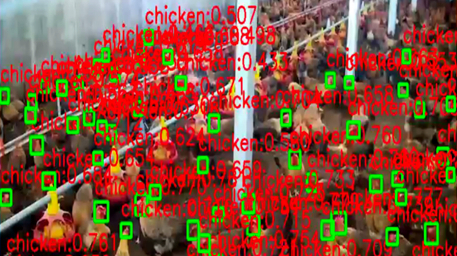
(VAN) In 2025, Xiashu Technology invested heavily in the R&D of artificial intelligence algorithms and is committed to the intelligent improvement of poultry hatching, breeding, and slaughtering.

(VAN) Mr. Johan van den Ban - CEO of De Heus Vietnam, encouraged international businesses to come to Vietnam to see firsthand the investment potential in the agricultural sector.
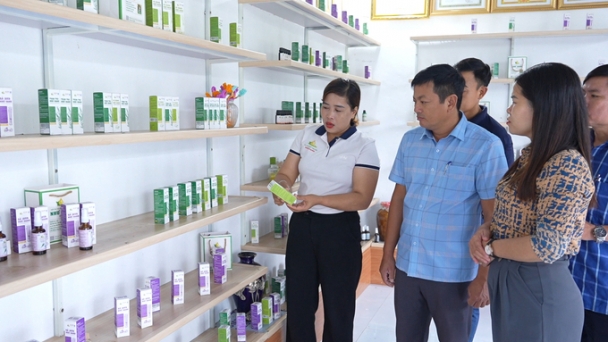
(VAN) The Nhu Oanh essential oil cooperative has expanded its medicinal plant cultivation area to 60 hectares and supplies over 300.000 seedlings annually.
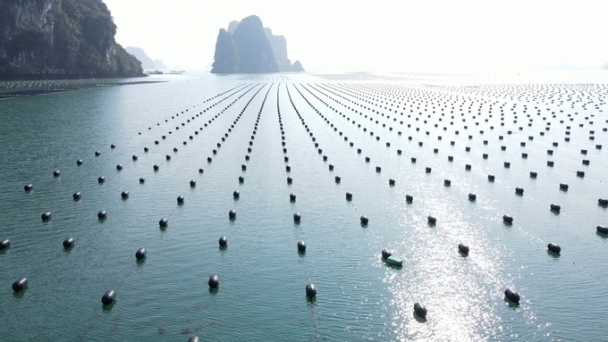
(VAN) Deputy Minister of Agriculture and Rural Development Phung Duc Tien emphasized this at the conference on ‘Development of mollusk and seaweed production’ held on the morning of December 26 in Nam Dinh.
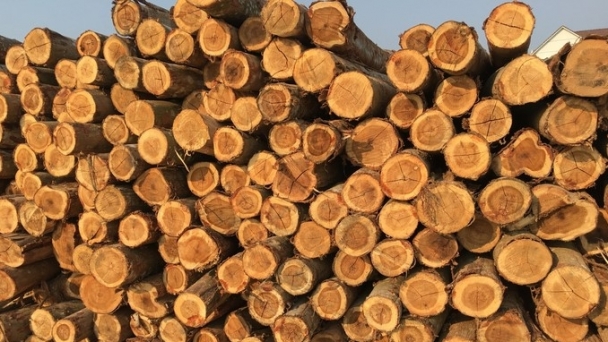
(VAN) Small planted forest timber is currently priced at 1.5 million VND/ton; large timber is priced at up to 1.8 million VND/ton; large timber with FSC certification is priced 20-30% higher than normal large timber.
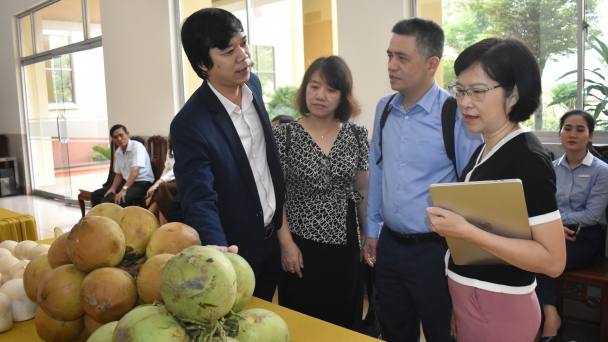
(VAN) The Vietnam Coconut Association has noted that the water coconut industry is thriving in Vietnam. Nevertheless, its development is still uneven, suggesting that there is a substantial untapped opportunity to attract foreign investors.
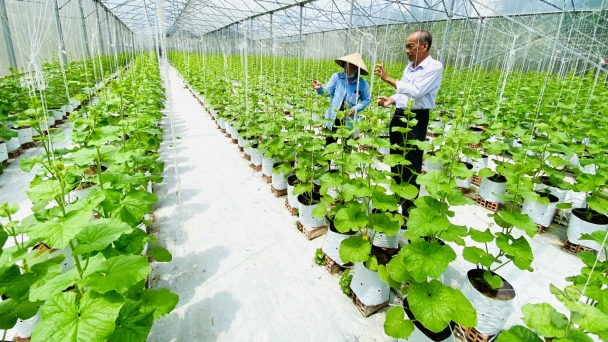
(VAN) According to the development plan for Can Tho in the 2021-2030 period, with a vision for 2045, the city will establish 7 high-tech agricultural zones and 2 concentrated livestock breeding areas.